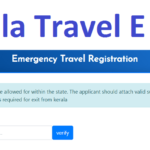As technology advances, more and more aspects of our lives become digital. These include our governments increasingly using digital tools to communicate with their citizens and carry out their work.
This shift creates opportunities for increased transparency and collaboration, raising concerns about security and trust. To take advantage of a digitally enabled government, citizens must feel confident that their data is safe and trust the government to use it moderately.
To build this trust, governments need to be transparent about using digital tools and ensure that they operate invariably with citizens’ values.
Table of Contents
Governments Are Increasingly Turning to Digital Solutions to Provide Better Services to Their Citizens
Some examples include online taxtax filing, e-voting, and new methods of delivering welfare services. In addition, government agencies need citizens to engage with them securely to carry out their work. Digital tools make this easier by providing a convenient, accessible, and more efficient transaction channel between the citizen and the agency.
The use of digital technologies also creates new ways for the public to engage with their government. For example, governments can now facilitate online consultations and make information more accessible.
It enhances democratic participation and engagement; however, it also increases the need for high security and privacy protection levels.
More and More Personal Data Is Shared Online, Trust Is Becoming an Essential Component of These Relationships
It is no longer sufficient to provide services digitally; instead, governments need to ensure that citizens feel safe and confident to use these tools securely. If people do not trust the government with their data, they’ll be reluctant to engage online.
It would prevent the government from reaping many benefits of an efficient digital footprint. To ensure efficiency in digital expansion, we recommend investing in a high-speed internet connection. Cox communications offer incredible speed and reliability. You can contact them on Servicio al cliente de Cox in order to get high speed internet
Therefore, the Key to an Effective Digital Strategy for Governments Is Trust
A government’s commitment to protecting its citizens’ privacy and security lays the foundation for citizen engagement.Keeping this in mind, elected officials, technology decision-makers at all levels of government, and other stakeholders must work together to ensure that security and protection of privacy are prioritized.
Blockchain Will Replace Inefficient Centralized Systems for Storing Data
Recently, there have been discussions about blockchainblockchain technology and how to revolutionize the way governments, businesses, and individuals share information. This decentralized platform allows for quick verification of records so that transactions are updated simultaneously across all systems without the need for third parties to oversee them.
Blockchain can be applied in numerous applications, such as financial transactions and medical records. However, it has implications for the government sector: replacing inefficient centralized systems for storing data may help governments be more transparent and accountable to their citizens.
With blockchain technology, governments can create a secure online repository accessible to the public and verify information in real-time. It increases trust in the government and saves money by reducing paperwork and allowing for more efficient record-keeping.
As a result, governance is more efficient, but the most significant benefit comes from citizens’ profound trust in their governments.
Only through Trust Can We Create Effective Digital Governments That Improve the Lives of All Citizens
The trust of citizens, in turn, is contingent on managing personal data responsibly. That responsibility lies with everyone who handles or uses such data. Therefore, the safe and effective management of personal data to maintain citizens‘ trust and create an environment where innovative technology can be deployed without undermining existing rights and freedoms must be ensured.
Conclusion
For managing risk better and developing effective digital governance, we must manage personal data responsibly. To ensure citizens’ trust, we must focus on implementing strong data protection and management policies. Only through these efforts can we achieve an environment where people can safely benefit from digital tools.











